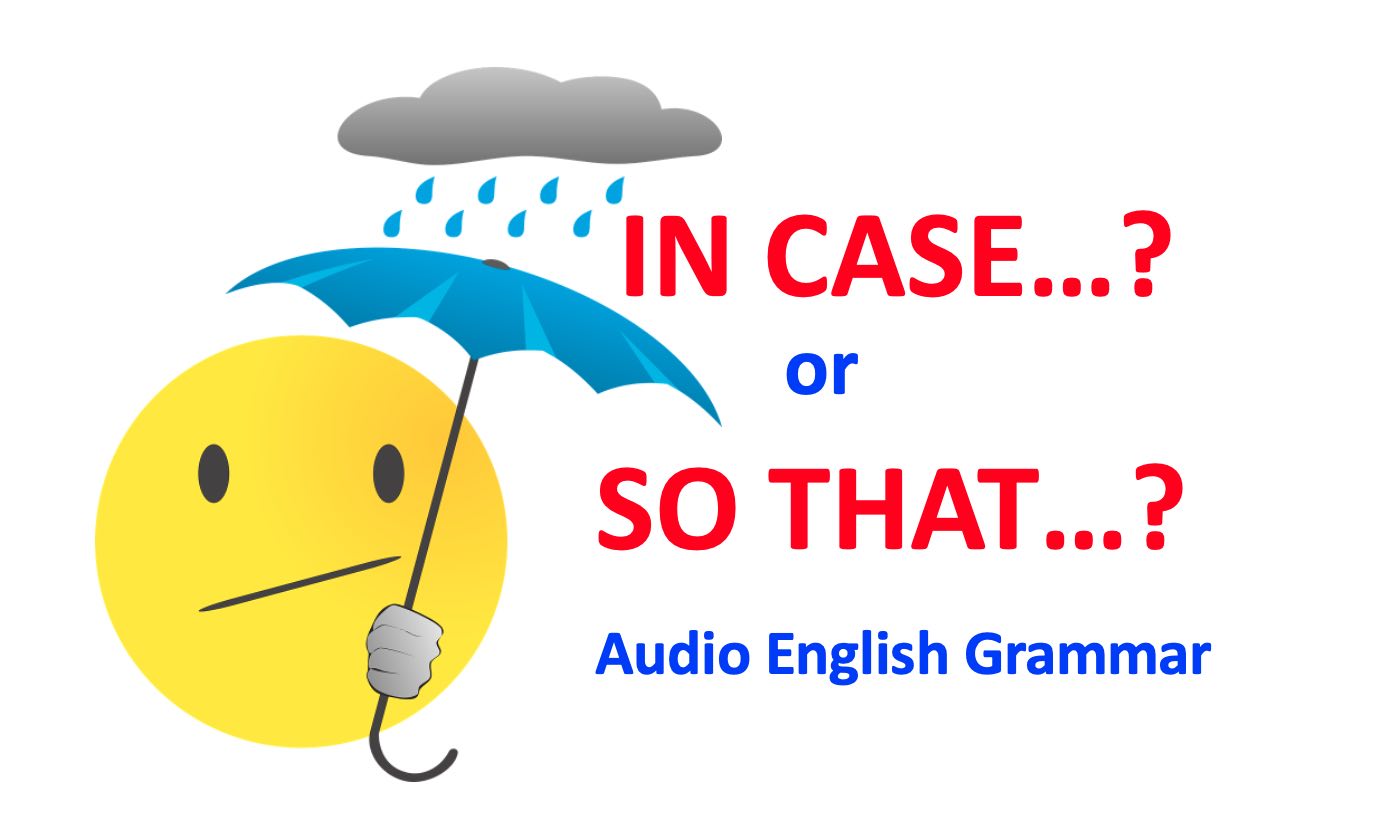IN CASE and SO THAT – How To Avoid Mistakes

When should we say SO THAT or IN CASE something happens?
Hello, I’m Jane at DailyStep English and welcome to my Audio Blog!
In today’s Audio English Grammar Lesson, you will learn how to avoid some very common mistakes with IN CASE and SO THAT.
Please speak along with me while you listen as this will improve your English fluency and pronunciation.
Here is Audio Word Study #099 from Jane Lawson at DailyStep.com
.
What is the difference between IN CASE and SO THAT?
.
These phrases are used for joining two clauses in a sentence. Students often confuse these two phrases, and when this happens it is easy for people to misunderstand what you are trying to say.
I hope that today’s DailyStep.com Audio Word Study will clear up this confusion for you!
.
Look at these pairs of sentences:
.
1. Please take an umbrella in case it rains.
2. Please take an umbrella so that you won’t get wet.
.
3. I always leave a spare key at my mother’s house in case I lose my own key.
4. I always leave a spare key at my mother’s house so that I will not be locked out of my house.
..
As you can see,
IN CASE is used before the situation that might occur.
.In example 1, it might rain.
In example 3, I might lose my own key.
SO THAT is used before the situation that you want to happen.
In sentence 2, I don’t want you to get wet.
In sentence 4, I don’t want to get locked out of my house after losing my own key.
** Remember, we can omit the word THAT from the phrase SO THAT. **
Here are the same ideas represented in dialogues:
1. – Please take an umbrella
– Why?
– In case it rains (note: I could also say “Please take an umbrella because it might rain.’)
2. – Please take an umbrella
– Why?
– So that you won’t get wet. (note: I could also say “Please take an umbrella in order to make sure you will not get wet.”)
3. – I always leave a spare key at my mother’s house.
– Why?
– In case I lose my own key.(note: I could also say “I always leave a spare key at my mother’s house because I might lose my own key.”)
4. – I always leave a spare key at my mother’s house.
– Why?
– So I will not be locked out of my own house.(note: I could also say “I always leave a spare key at my mother’s house in order to make sure that I will not be locked out of my own house.”)
So, I hope you can now understand the difference between IN CASE and SO THAT.
It is a good idea to write some examples that are true to your own life, as it will help you to remember them better!
Be careful when you use these phrases!
Study them carefully in case you need to use them in conversation.
Study them carefully so that you don’t make mistakes!
If you enjoyed my Audio Blog, please share it. Thank you 🙂
How to speak English fluently and understand fast English
DailyStep English Audio Lessons are designed to help you learn to speak and understand English at the speed that we speak it.
No matter how good your English is, you need to be able to follow a fast conversation in order to participate.
DailyStep English courses are fully accredited and you can get an internationally-recognised certificate for your CV or resume.
How to use your lessons:
How to slow the audio:
How to Start Daily Audio Lessons
✔ Daily Audio Lessons + Premium Audio in my Blog Library
✔ Your lessons never expire – you can take them again any time
✔ Change your level any time
✔ 100% happy or your money back!









